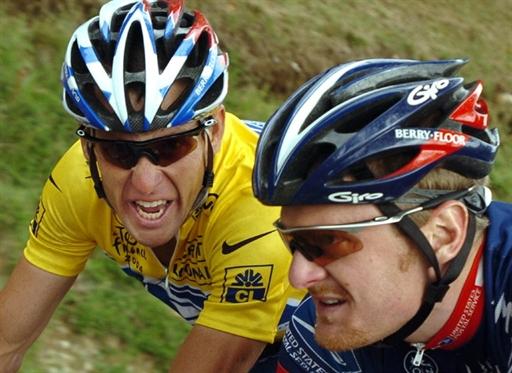Lance Armstrong medical records critical to whistleblower case, says US government
US government pushing for Indiana University records to confirm confession
The latest race content, interviews, features, reviews and expert buying guides, direct to your inbox!
You are now subscribed
Your newsletter sign-up was successful

The US government says obtaining Lance Armstrong's medical records from the Indiana University School of Medicine could be key to proving fraud in the whistleblower lawsuit first brought by Floyd Landis against Armstrong and the US Postal Service team management in 2010, under the US False Claims Act. The US government joined the suit in 2013, and has been steadily gathering testimony from all of the key players who were aware of Armstrong's doping prior to his 2013 confession.
Andreus disappointed over revelations
Report: Armstrong associates agree to settle with US government
Andreu willing to cooperate with whistleblower suit against Armstrong
Stapleton-Knaggs settlement rejected in Landis and Armstrong case
Armstrong fearing financial ruin from federal whistleblower lawsuit
The medical records could back up testimony made by Frankie and Betsy Andreu, who first described witnessing a 1996 conversation between Armstrong and his cancer doctors at the school in which he allegedly admitted to using EPO, testosterone and steroids, in the 2005 SCA Promotions case.
Armstrong denied for years that the conversation took place, and now reportedly claims that he has no memory of the conversation because it took place shortly after he had brain surgery to remove a cancerous tumour. The government intends to show that Armstrong went to great lengths to cover up his performance-enhancing drug use, including intimidating witnesses with threats and lawsuits.
According to the Associated Press, the government stated that Armstrong's actions to deny the allegation that he admitted to drug use in 1996 "were critical to hiding the truth of his doping from, among others, the United States Postal Service,” in its recent filing in Washington, DC.
In addition to attempting to obtain the medical records, the release of which Armstrong's attorneys are fighting against, the government has also subpoenaed records from the Lance Armstrong Foundation, noting that it gave $1.5 million to the Indiana University School of Medicine just two days after the first testimony regarding the hospital room conversation.
Dr Craig Nichols, one of the physicians who treated Armstrong in 1996, testified in 2005 that there was no record of any performance-enhancing drug use by Armstrong, is coincidentally a former board member of Armstrong's charity, which changed its name to Livestrong after Armstrong was banned for life for doping in 2012 and Armstrong resigned from his position as chairman. Armstrong asserts the donation was made to honour the man who designed the treatment that cured Armstrong, Dr Larry Einhorn.
US District Judge Christopher R. Cooper could decide whether to order the release of the records this week, but Armstrong's attorneys continue to argue that the request is "harassment", and an invasion of privacy.
The latest race content, interviews, features, reviews and expert buying guides, direct to your inbox!
Should the US government be able to demonstrate that Armstrong and his fellow defendants Thom Weisel and Johann Bruyneel and possibly Tailwind Sports partners Bill Stapleton and Bart Knaggs could be subjected to penalties three times the more than $30 million in funds the government seeks to recover from the US Postal Service team's sponsorship deal.
Knaggs and Stapleton attempted to settle in 2014 for a reported $600,000, but the government rejected the offer.

